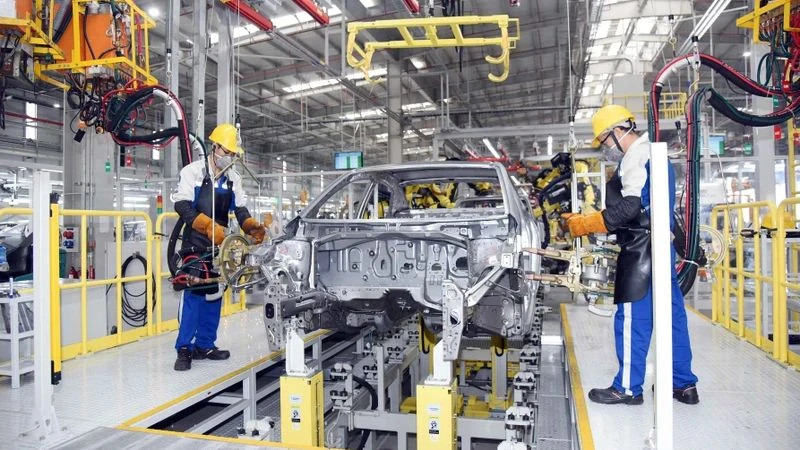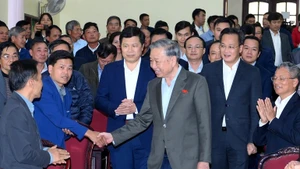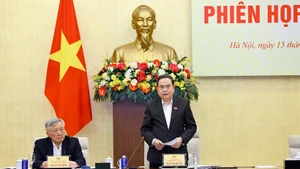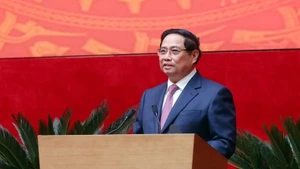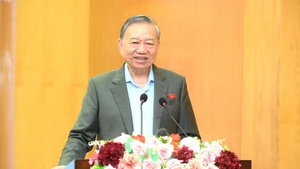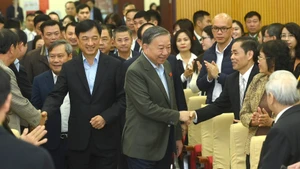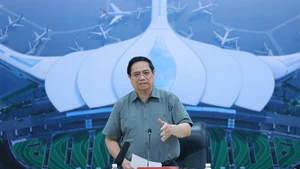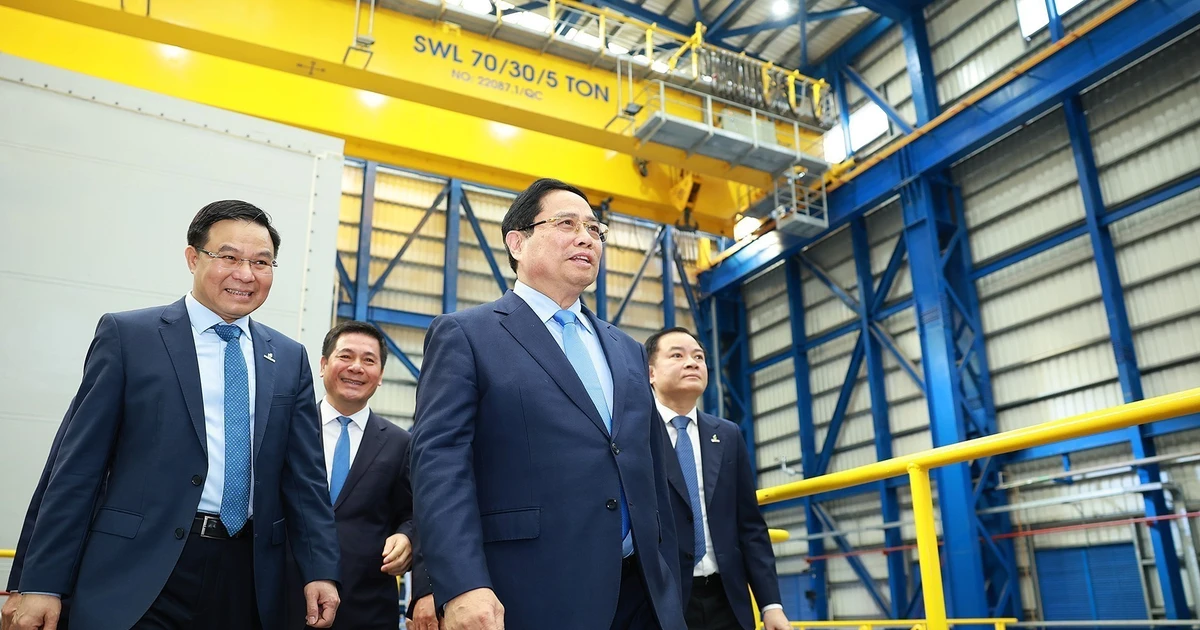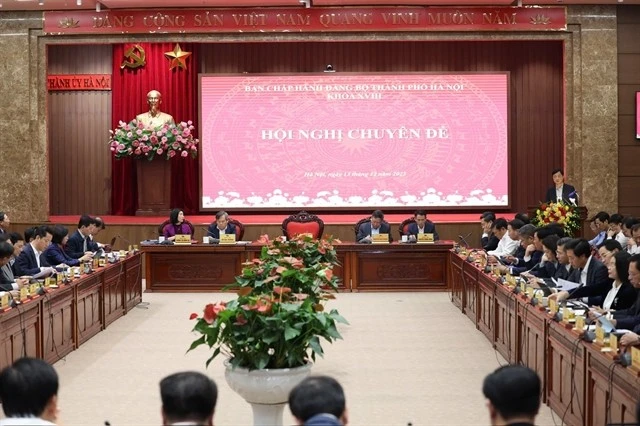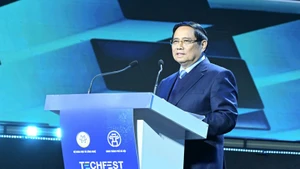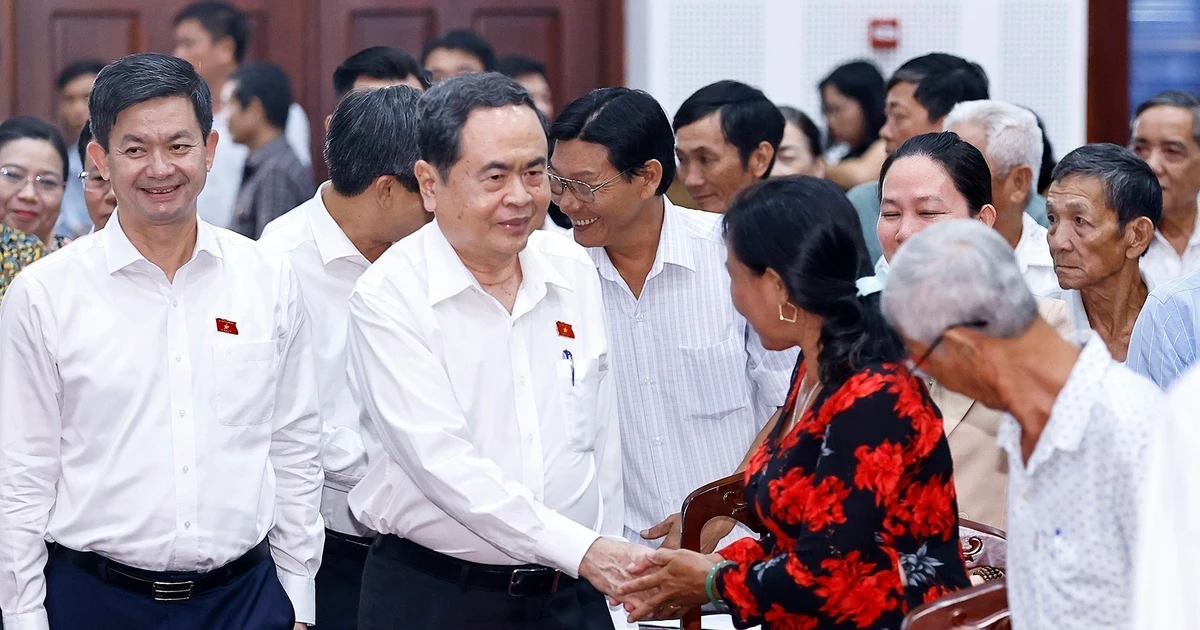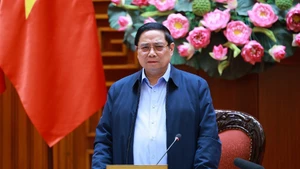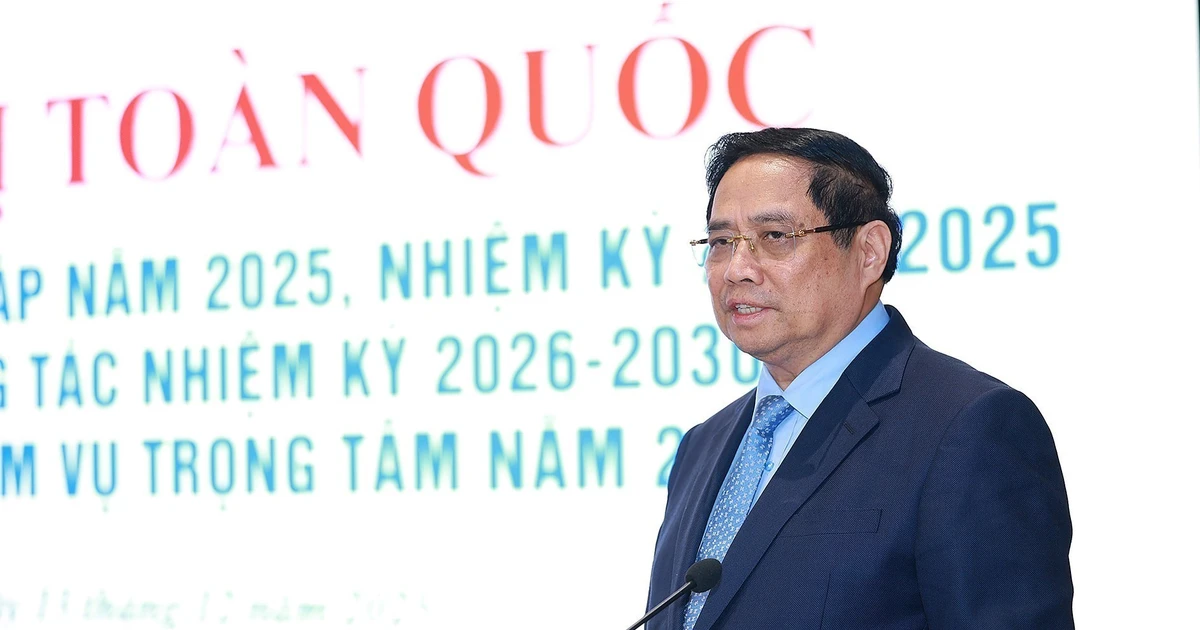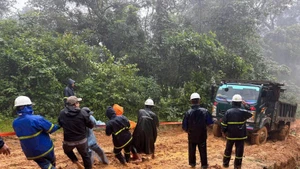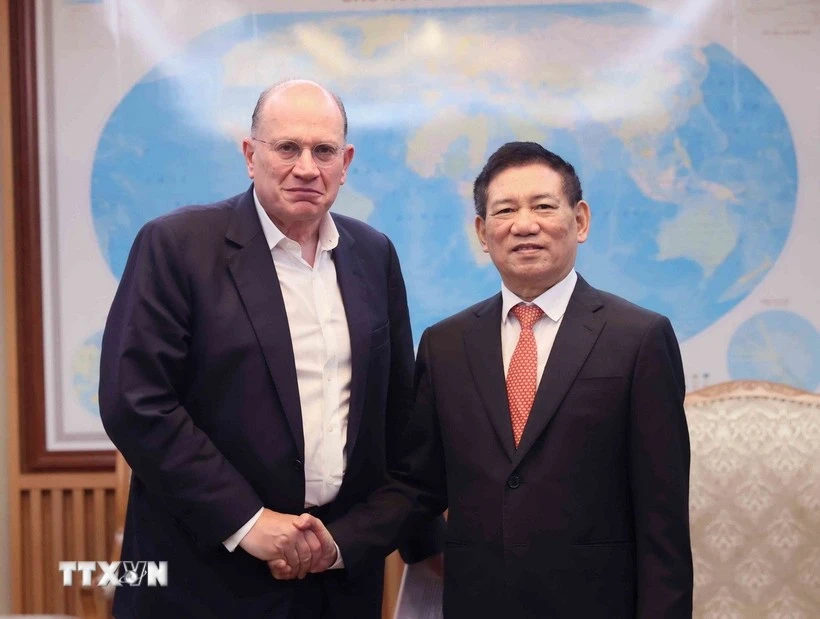The August Revolution in 1945 erupted in the context of the Soviet Union and allied forces having defeated fascism, and the anti-Japanese revolutionary movement, led by the Party, having reached its peak. With 5,000 Party members, the entire Party was determined to mobilise the revolutionary masses into action to "liberate ourselves with our own strength."
President Ho Chi Minh issued a directive, stressing that: “the favourable moment has come, no matter the sacrifice, even if we have to burn down the entire Truong Son range, we must resolutely achieve independence." The Party also clearly recognised a major threat the French sought to return and re-establish colonial rule in Vietnam and Indochina, while the allies, coming to disarm the Japanese forces, harboured ill intentions to undermine the Vietnamese revolution. In the August Revolution, the Party achieved its greatest success in mastering the science and art of seizing opportunities and averting dangers.
During the resistance against French colonial invasion, culminating in the historic Dien Bien Phu Campaign, President Ho Chi Minh stated that defeating the French in this campaign was essential, as only victory would create a fundamental shift to end the war.
The Party and President Ho Chi Minh quickly recognised the new threats and challenges posed by US imperialism, which sought to replace the French and impose neocolonialism in Vietnam and Indochina. This severe challenge lasted for 21 years, which Vietnam had to overcome following the Geneva Accords (July 21, 1954).
The struggle against the US for national salvation was a long and difficult campaign, marked by immense hardship and sacrifice. Vietnam successively thwarted the enemy's cunning war strategies, eventually forcing the US to sign the Paris Agreement (January 27, 1973), which recognised the independence, sovereignty, and territorial integrity of Vietnam. This agreement led to the withdrawal of American and allied forces.
This was an opportunity for Vietnam to dismantle the puppet army and regime, leading to the complete liberation of the South and the reunification of the country. Highlighted by the Ho Chi Minh Campaign, the historic Spring Victory in 1975 was a triumph that condensed decades into a single day. However, Vietnam also had to address immediate dangers, such as the potential for US re-intervention and the complexities of international relations.
Highlighted by the Ho Chi Minh Campaign, the historic Spring Victory in 1975 was a triumph that condensed decades into a single day. However, Vietnam also had to address immediate dangers, such as the potential for US re-intervention and the complexities of international relations.
After April 30, 1975, the Party led the entire nation in building socialism, seizing new opportunities with the resolve to rebuild a "more dignified and more beautiful" country, as envisioned by President Ho Chi Minh, based on the position and strength of a unified nation. However, the Vietnamese revolution faced severe challenges, including: the blockade, embargoes, and sabotage from reactionary forces inside and outside the country; border defence wars in the southwest and northern regions; and fulfilling significant international obligations to Cambodia and Laos. Additionally, the country plunged into an economic and social crisis beginning in 1979.
Amid these challenges, economic bright spots began to emerge, marked by innovative approaches and models in places like Hai Phong, Ho Chi Minh City, Long An, and other localities. The Party focused on summarising and testing practical experiences, gradually implementing reforms, overcoming subjectivism, impatience, and maintaining a commitment to comprehensive renewal. This included a focus on renewing theoretical thinking, particularly in economics.
The decision to respect and appropriately apply objective laws in specific policies and the formulation of the renewal path at the 6th National Party Congress (in December 1986) marked a turning point for Vietnam. The comprehensive renewal initiated at this congress was described by late Party General Secretary Nguyen Van Linh as "the command of life" and a new opportunity for national development.
The renewal pathway, as set forth in the Party's Platform for national construction during the transition to socialism, has been continuously supplemented and expanded, proving its correctness through nearly 40 years of practical experience.
The renewal pathway, as set forth in the Party's Platform for national construction during the transition to socialism, has been continuously supplemented and expanded, proving its correctness through nearly 40 years of practical experience.
Throughout the renewal process, Vietnam has enjoyed the advantage of unified perception, will, and action across the Party and people. The Party’s direction and platform reflect creative loyalty to Marxism-Leninism and Ho Chi Minh's ideology, remaining steadfast in pursuing the path of national independence and socialism while consistently integrating new insights.
This renewal process adheres to the principles that "the people are the root" and "humans are at the centre", starting from practical realities and correctly applying objective laws, particularly the characteristics and laws of the transition period to socialism. The renewal has generated developmental momentum through economic benefits, market economy mechanisms, and state management under the rule of law.
During the renewal process, Vietnam had to overcome numerous challenges and risks to development. The collapse of the socialist model in the Soviet Union and Eastern Europe was a major loss for the global revolutionary movement but offered valuable lessons. These lessons have allowed the Communist Party of Vietnam to avoid the mistakes made by other socialist parties and countries, leading to a clearer understanding of socialism and the socialist path in Vietnam. As General Secretary Nguyen Phu Trong emphasised: "We need a political system where power truly belongs to the people, by the people, and for the benefit of the people.”
Since 1994, the Party has identified four risks including falling further behind economically compared to other countries; deviating from the socialist path; corruption and wastefulness; and "peaceful evolution". To date, these dangers still exist, and some have become more complex, especially corruption, negative behaviour, and the degradation of political ideology, morality, lifestyle, along with "self-evolution" and "self-transformation" among a portion of officials and Party members, threatening the survival of the Party and the regime.
The current socialist-oriented renewal is progressing strongly in accordance with the Resolution of the 13th National Party Congress. By 2030, Vietnam strives to be a developing country with a modern industrial base and upper-middle-income status. By 2045, it strives to become a developed country with high income, emerging as a powerful, prosperous, civilised, modern, and happy nation.
At present, Vietnam has many opportunities for rapid and sustainable development. The country holds a strong position with its accomplishments, potential, international standing, and reputation. The political regime remains stable, demonstrating its superiority through the strength of national solidarity and the sound, the steadfast leadership of the Party, the effective governance of the State, strong national defence and security, and open diplomacy that fosters a peaceful, friendly, and cooperative environment for development.
The global trend continues to be the globalisation, integration, and cooperation for mutual development. This includes the positive impacts of the Fourth Industrial Revolution (Industry 4.0), artificial intelligence (AI), information technology, and digital transformation. These opportunities are interwoven with difficulties and challenges.
Among these challenges is the opposition from hostile forces, both domestically and internationally, against the leadership of the Party and the socialist regime in Vietnam. The economy's development remains unstable and has not fully realised its potential. The scientific and technological infrastructure is still incomplete.
The level of human resources, especially high-quality personnel, remains limited, and labour productivity is still low. Additionally, there are regional conflicts and wars around the world, along with competition among major powers. The financial crisis in the region in 1998 and the global economic recession starting in 2008 had negative impacts on Vietnam's development. Non-traditional security issues are becoming more severe, such as climate change, environmental degradation, rising sea levels, natural disasters, and pandemics (such as the COVID-19 pandemic and Typhoon Yagi – Storm No. 3).
The 10th session of the 13th Communist Party of Vietnam Central Committee (in September 2024) discussed and gave opinions on the documents to be submitted to the 14th Party Congress, the report summarising 40 years of renewal, and the personnel planning for the new Party Central Executive Committee, Politburo, and Secretariat. These are strategic topics ensuring robust development, allowing the 14th National Party Congress to truly usher in a new era for the nation and the people. The Party Central Committee also decided on specific issues aimed at better implementing the strategic breakthroughs set by the 13th Congress.
Previously, Party General Secretary and President To Lam made important statements and speeches regarding digital transformation, the construction of a modern productive force, and advanced production relations that align with shaping new production methods. He emphasised the need to continue renewing the Party's leadership and governance methods to ensure that the Party's leadership and advisory bodies truly embody intellect and model behaviour and take the lead in governance during this new era — an era of national rejuvenation.
Revolution always has its driving forces for development. In the national liberation and resistance against foreign invasion, the driving forces were patriotism, the desire for peace, independence, freedom, and faith in a just cause.
In the recent journey of renewal, the driving force has been the economic interests of the labour force; the aspiration to escape poverty and achieve legitimate wealth; the market economy; international integration; and harnessing internal resources along with external forces.
Today, it is essential to recognise new driving forces for the country's rapid and sustainable development.
These driving forces include modern productive forces that create high labour productivity; a knowledge economy that applies the highest achievements of science and technology; high-quality human resources; a new culture that serves both as a foundation and a driving force for development; the strategic vision of the Party in leadership and governance; the creativity of the people; and the interests of the nation and its people, infused with confidence, pride, and national self-respect.
During his lifetime, Party General Secretary Le Duan emphasised that the fundamental issue in the Party's leadership is to establish a correct strategic direction and choose appropriate revolutionary methods. No field requires as much creativity, and constant innovation, as does the revolutionary method.
An era is a scientific concept that refers to a historical period characterised by distinct features and prominent content that determine the development trends of a nation, people, or all humanity. The August Revolution in 1945 opened a new era for the Vietnamese nation — an era of national independence linked to socialism. This era can also be expressed as the new era of the nation — the Ho Chi Minh Era.
Identifying this new era also involves clarifying its characteristics and fundamental content so that the entire Party, people, and military can thoroughly grasp and successfully implement it, thereby advancing the nation to new heights.
